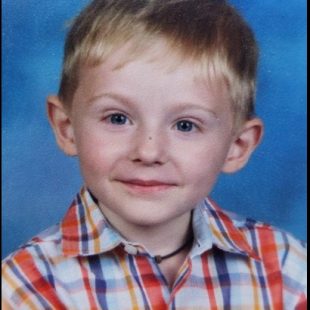If you have been watching the news lately, you have seen stories of Maddox Ritch, the young boy with autism, that wondered away from his father and was missing for days. When Maddox was finally found, it was too late. If you are an autism parent, this is a very real fear. But there are things that you can do.
What can you do when an autistic child or adult wanders off
By Melody Rain
One of the scariest moments for a parent of an autistic child is when they wander off or become lost. Children and adults with autism can be gone in a second of taking their eyes off them. They are fast, quick and sometimes can dart away without a seconds warning.
Sometimes they may wander off out of the house in the middle of the night, sometimes from schools or other places. No matter where the child or adult may wander one must act quickly.
It has been said that at least 50 percent of children or adults with autism will wander off at some point and time of their life. It is also known that a high percentage of those with autism who wander are attracted to water and end up drowning.
As an adult with autism, I remember moments of my life where I have wandered away or became lost. It would occur quite often mostly because I would be settled in my own thoughts and blocking out my own surroundings or focused on something of interest. I wandered away in stores, off school grounds, fairs and at events that were very crowded. Fortunately, I was found each time whether it be my parents, teachers or police. Even more fortunate, I never became one of the statistics that so many of us endure and I was verbal enough I could at least communicate some important information.
But so many of us with autism cannot. In fact, many with autism are nonverbal, may not realize that they are in danger and may hide further into solitude rather than seek out to be found.
So, what can you do to help? I say you in a strongly emphasized way because you as a community, you as a neighbor, you as a friend or teacher, you as an emergency professional and you as a parent…what can you do?
Prevention of wandering is one thing that we can all try but even with the best prevention, the best hawk-eyed, hovering helicopter parents cannot always prevent this from occurring.
Therefore, get to know your neighbor, get to know your community workers and emergency professionals. Knowing these people causes them to get to know you and your child. It causes them to be aware when you have a child with autism and to help not only be an extra set of eyes if they happen to see your child walking alone but can create a safety net of awareness in your community if something does go wrong. It is important that neighbors, community workers and professionals be willing, accepting and nonjudgmental when it comes to this type of support so that if something does go wrong everyone pulls together to help.
If a child or an adult with autism wanders away the first thing you need to do is act fast. You call 911 and let the emergency professionals know that the child or adult has autism. This information should be alerting to all emergency professionals knowing the risks that can happen if they are missing.
Secondly, you want to secure all waterways that you know about. Any creeks, rivers, lakes, ponds, swimming pools in the area. Secure any highways or roadways that has busy traffic.
Most of the time, a child or an adult with autism who is wandering will not sense the dangers of traffic or other places (train tracks that are busy with trains). If a child has not made their way yet to those areas…they may eventually.
Call your neighbors and anyone near the vicinity that you know that can help you with securing those areas. The public can also be of support with some of these areas. It wouldn’t be too bad for the police to have willing public volunteers on hand to call in times of needs like this so that there is more manpower to help with those sorts of things. Check small spaces. Children especially and even small adults may find small tight spaces and fit their bodies inside. They often seek out dark spaces or tightly enclosed areas that can relieve them of any sensory discomfort or fears.
Neighbors and people in the areas should check their back yards, under cars, inside of their cars (some people leave their cars unlocked and a child with autism may crawl inside without anyone knowing), garages, sheds, under boats (canoes/kayaks), under decks, inside dog houses or any other small spaces that may be around that area.
Community workers and people in the community should also check tires of parked tractor trailers where a small child can fit between the tires under the shade of the truck, under parked trains or on top of trains or railway cars. A kid with autism may be high or low and just about anywhere which can make searching difficult. People should be aware of any and all possibilities.
Some things to consider while searching for a child or adult with autism include:
• A child with autism or even an adult child with autism is going to find comfort in familiar people verses those that they do not know. Having the parent or caretaker that they are most familiar participate in the search is vital. Whereas a child may continue to hide when they do not know the people they may come out when they see their mother or father who nurture them. Most times a parent may be seen as a suspect in missing persons cases. Unless proven, they still should be allowed to participate in the search (even if supervised) because it may greatly alter the success of finding the child alive.
• A non-verbal and even some verbal children or adults with autism may not respond to their name even if called out by their own parents. For this reason, playing a song they normally react to or participate in, words that they like to hear and repeat or phrases they like to script or even a favorite sound that they enjoy or are drawn toward can be played over a speaker or megaphone to illicit some type or movement or response so that emergency crews can locate them. These songs or sounds should be played and shut off to hear for the child repeating or singing along then played again to continue to get response and an idea of their location.
• Look for clues. Children with autism may leave clues around them. Some are known clues such as losing parts of their clothing along the way, but some clues may be other things where the child has stopped along to play with something they have found of interest. (For example, rows of pebbles or rocks neatly organized or lined up). This may be a rare thing to see but not something to rule out as it could very well tell you that the child has been in this area.
• If the community has people with autism who are more verbal and who give advice…take the advice into account. Consult with autism professionals and experts but do not rule out your autistic adults as being considered as one of the experts. Their experience is lived and sometimes they can visualize things in the same way that child may have visualized when wandering away. They may know which way the child would have gone, what track they would have taken or what spaces they may choose to hide in. They may also have other ideas in which to share that may help elicit responses that others may not know or what may scare that child into further hiding (which could hurt efforts more than help). Sometimes autistics can be the voice of others with autism who cannot speak for themselves. Value their capabilities and worth in these types and other situations.
• Never give up or lose hope until you find the child. Children and adults with autism can be some of the toughest of all when it comes to resilience. Don’t give up until you have found a good reason.
• Support and give love to the parents. Try not to judge…especially during these times. If they are people who have done criminal things that will be found out sooner or later. However, they may just be people like you who love their children as much as you love yours and who would be completely devastated if anything would ever happen to them.
We all react differently in different situations. Be considerate that you may not react the way that someone else may react and you may not know or understand the reason.
This is the time to support and come together. Try not to let them feel isolated and helpless during this time but give them what you would want if this tragedy ever would happen to you.
Melody Rain is an autistic adult who lives in the Gaston County area and has dedicated many years toward helping others understand autism as she knows it as well as educating police, fire and other emergency professionals. Melody Rain is an avid educator in Crisis Intervention in Charlotte Mecklenburg and participates in her local Special Olympics. She is very passionate and enjoys helping parents of children with autism as well as an advocate for many others.

